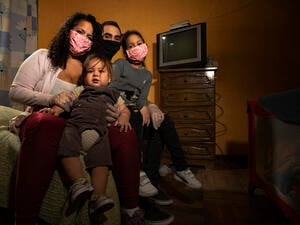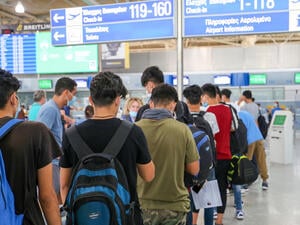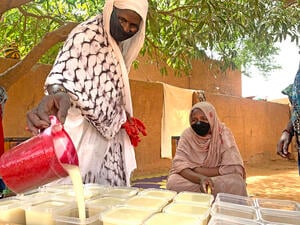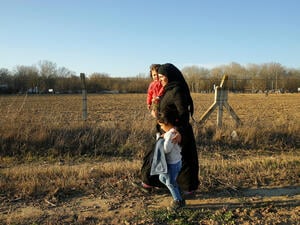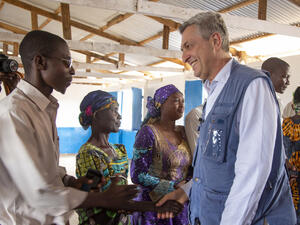Somalia: UNHCR provides aid to 40,000 displaced near Mogadishu; more planned
Somalia: UNHCR provides aid to 40,000 displaced near Mogadishu; more planned
UNHCR this week completed the distribution of aid to more than 40,000 internally displaced persons (IDPs) in over 50 settlements west of Mogadishu. The aid was delivered to IDPs living along a 30-kilometre stretch of road linking Mogadishu to the town of Afgooye, west of the Somali capital. An estimated 300,000 former residents of Mogadishu are in the area, living in precarious conditions in a tangle of some 200 crowded settlements. The IDPs targeted during this round of distribution of essential supplies, carried out in partnership with a Somali NGO, are the most vulnerable households, including those who fled the Somali capital recently, as well as some of the poorest families who were identified with the help of elders and partner agencies.
Because of the numerous checkpoints set up along the road by militia and soldiers who extort money in exchange for safe passage, it took two days to bring the aid from Mogadishu to Afgooye - a distance of less than 30 kilometres.
Each family received one plastic sheet, one kitchen set, three blankets and six sleeping mats - all sorely needed by the displaced. Plastic sheets are much in demand. The rainy season began this week, forcing many families to crowd tiny shelters without room to lie down to sleep.
This first round of distribution will be followed by a second one for another 40,000 IDPs in Afgooye and on the immediate outskirts of Mogadishu. Essential supplies will also be distributed in the coming weeks to 12,000 people who fled recently to the town of Marka, some 80 kilometres south-west of Mogadishu. The seaside town has an estimated 14,000 IDPs from Mogadishu alone. Over the last year, UNHCR has distributed aid to more than 100,000 people living in the Mogadishu-Afgooye corridor.
More than 42,000 civilians have fled the volatile Somali capital since March this year following an increase in violence between the Ethiopian-backed Transitional Federal Government troops and the insurgents. Overall, an estimated 800,000 people have fled Mogadishu since violence engulfed the city in February 2007.
There is a heightened sense of frustration among some of the IDPs, who have now spent more than a year in crumbling shelters. Many say they are desperate to return home, although this is not possible as Mogadishu remains unstable and more people are fleeing the capital each week.
Young people have grown especially frustrated at the lack of prospects. Young men and women increasingly talk of plans to leave Somalia and travel to Yemen without informing their families. More families are now aware of the danger of crossing the Gulf of Aden on smugglers' boats. UNHCR has carried out awareness-raising campaigns on radio about the risks. Since the beginning of the year, more than 18,000 people have crossed to Yemen. Some 480 are missing and presumed dead.
Life in the IDP settlements has become even more difficult with the rising cost of food. IDPs have held several demonstrations in the past few weeks to protest rising prices of food commodities. For example, a sack of rice has risen by 30 percent in just one month.
The need for a means of livelihood is becoming a pressing issue for the IDPs who have been living in Afgooye for up to a year in some cases. Responding to this, UNHCR has started a poultry project to help 180 women, most of them widows facing problems in caring for their families. After training in this small business, the women will each receive 20 chickens - commonly known as layers. They will raise income mainly through the sale of eggs. UNHCR has also used the opportunity to educate the women on their rights and prevention of sexual abuse and support for survivors of rape.




